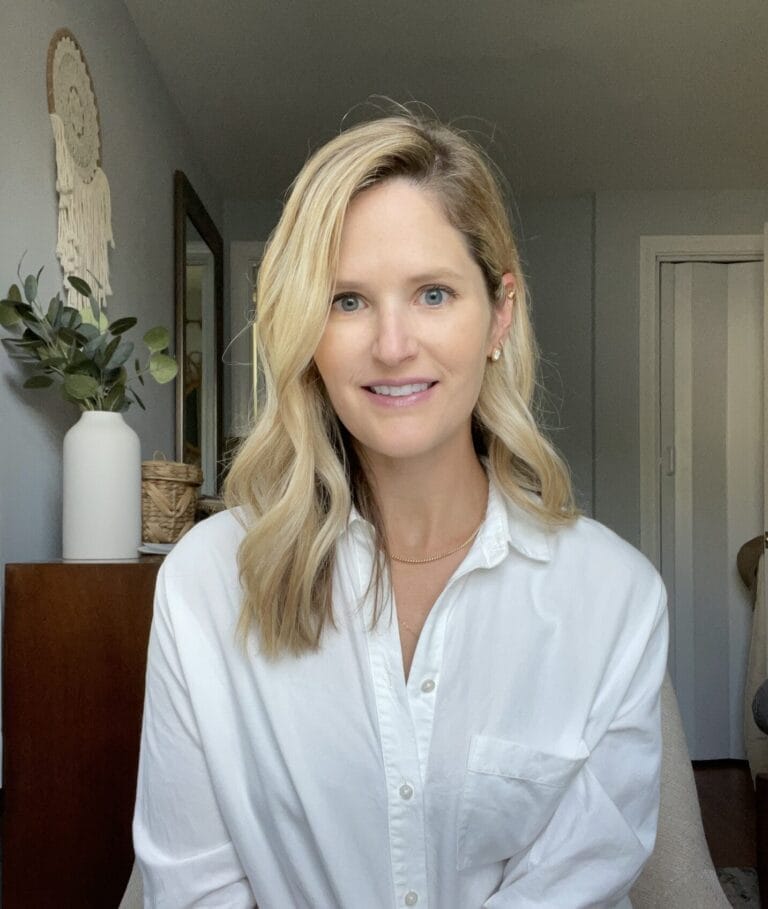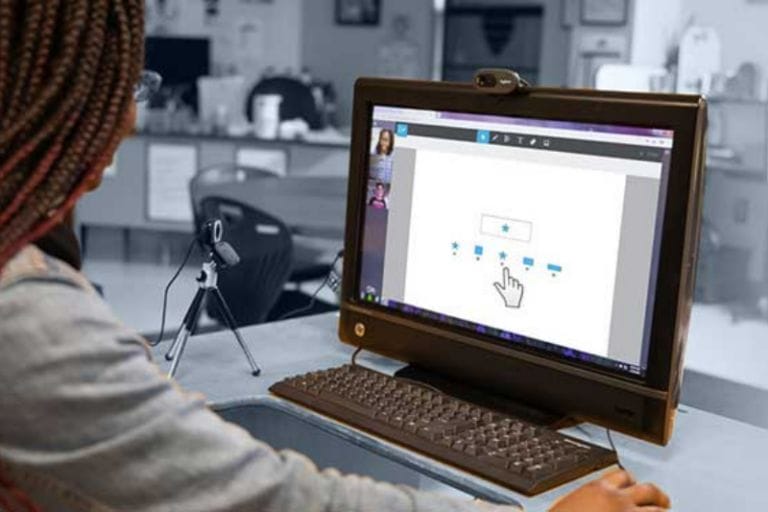
It’s no secret that teletherapy helps provide school districts, healthcare organizations, and patients across the U.S. access highly-qualified professionals who would otherwise be outside of their geographic reach. However, clinicians who have gotten into telepractice on their own have found that, although technology allows them to easily connect with their clients and patients across state lines, building their business and staying in compliance can be real challenges.
A big reason why PresenceLearning has been successful at getting our telepractitioners the hours they want is because we have a dedicated team that works to match clinicians with opportunities no matter where they are. Our team of specialists know the state laws and requirements and can even offers bonuses to clinicians who obtain additional state licenses. This means clinicians can fill their caseloads and get the hours you want, all while working from home.
So what do clinicians need to know about the logistics of getting started with telepractice and staying in compliance? The following is conversation with Claire Stephenson, Provider Onboarding Lead with PresenceLearning.
What do you do for clinicians and why is this role important?
Most of our SLPs, OTs, and mental health professionals come to us with amazing experience, but have never done teletherapy before. And that’s absolutely fine. Teletherapy is new and innovative, and we understand that it can be a little scary at first. Onboarding specialists walk clinicians through the orientation process, from their first day as a contractor with PresenceLearning until they start their first assignment.
There are two main concerns that clinicians usually have when they first come to us. First, they can be concerned about feeling isolated. They are used to being in a school environment, which is highly collaborative, so it can feel kind of scary to be doing something all on their own. They are also looking for support and guidance. They are wondering, “How am I going to learn about teletherapy? How am I going to get the right licenses? How am I going to provide the best care and continue to develop and do all of this in a compliant manner?”
For anyone who is worried about feeling isolated, we want you to know that your onboarding specialist is really your go-to person at PresenceLearning. If you’re confused about who to go to, you can always turn to your onboarding specialist. We are kind of like air traffic control — if we can’t personally answer your question, we will point you to the right person. We answer big questions and small questions and we are really just there to be your teammate.
We also do all we can to support new clinicians. We help them with their orientation, we help them with Telepractice Institute (PresenceLearning’s orientation coursework), and we encourage them to participate in screen-sharing sessions and mock therapy sessions with their mentors. Our clinicians already have a strong foundation of clinical skills, and we just help them translate those skills to teletherapy and make sure that they know all of PresenceLearning’s systems and procedures. There are a lot of details, so helping them feel supported is huge.
PresenceLearning clinicians certainly are not going to feel isolated once they are connected with their clinical mentor, using our online platform, and connecting with other clinicians on Yammer (our internal social media tool).
How does the licensing work for telepractice? Do you help clinicians obtain additional licenses?
Yes, and that’s very important. Clinicians who decide to try to set up their own shop may not have the resources to get cross-licensed. According to ASHA and other major organizations, you must have a license in the state where you live, as well as a license in any state where you are seeing students. So, if you currently have one state license, that’s fantastic — we might be able to connect you with schools right away. But oftentimes, to increase your chances of getting the hours you are looking for, we will recommend a state or two where you might pick up an additional license. We call that process cross-licensing, and it’s one of the great things about telepractice.
So as an example, let’s say you live in Tennessee. The first thing we will do is help connect you with kiddos in that state. But, especially at certain points in the school year, there might not currently be enough students in Tennessee whose availability matches yours. In that case, we would recommend that you get additional state licenses. We might say, “We advise you to get a license in X, Y, or Z state.”
The best part is that we will help you get that license. We really walk you through every step of that process. We send you all the application materials — all the paperwork and documentation that you’ll need. We’ve already done the research for you so we know about how long it will take for that license to get approved. We have an amazing compliance team that’s going to help you with fingerprinting and background checks, as well as any other testing or compliance materials that you need.
And of course we help financially as well. We will provide a bonus structure to offset the cost of cross-licensing when you get an additional license at our recommendation. And really, when it comes to state licenses and telepractice, the more the better. It greatly increases your opportunities and your flexibility when you can work across different states and time zones. We have many clinicians who end up with 3, 4, 5, or even 6 licenses.
How do you make sure clinicians stay in compliance?
Being thorough in the licensure process is very important. Our team makes sure everything is updated and makes sure you have the right licenses in all states where you will be providing therapy. And we make sure to stay on top of all requirements for background checks.
There is an independent contractor packet that all new clinicians get, which is a really helpful guide to get started. It’s kind of a roadmap. It gives you an overview of our organization, but it also includes a lot of important forms and paperwork.
How do you determine which state licenses clinicians should get?
The reality is that cross-licensing is an art, not a science. Our opportunities are based on real-world school districts and they are always moving targets, so we use the available information and make the best predictions we can. That being said, we are going to recommend that you get an additional license in the state that gives you the highest chance of getting the hours you want. That may be a state where we are partnering with a lot of new school districts, or it may be a state where one of our partner districts has a lot of new kiddos who need services. It could be a virtual site and even though it’s February, they are adding a lot of new students.
There are a lot of factors to consider when we are doing assignments. Of course, we look at a clinician’s availability and what time zone(s) they prefer to work in. Also, certain states require a teaching certificate, so if you don’t have one, we would first look for assignments that wouldn’t require you to go through the process of getting one. There are a lot of factors that come into play, but what really drives our recommendation is where our schools need us the most and then also, of course, where our clinicians have the best chance of picking up the hours they want.
How long does it usually take to get cross-licensed?
It really varies by state. The fastest states take around 2 weeks and the longest can take 8 to 12 weeks. In some states, you can start working immediately as long as you’ve submitted your application and there’s a 30 day grace period. That means if you have submitted the application and we think it will get approved within 30 days, you can go ahead and start immediately.
In most cases, we have found that if clinicians use the assistance and resources that we provide them, the application process is pretty easy.
Is national certification important for cross-licensing? For instance, do SLPs need their ASHA CCC?
Yes. For SLPs, the easiest way to get cross-licensed is ASHA CCC verification. A typical licensing application will ask for your work experience, 2-3 professional recommendation forms (letters of reference by past or current supervisors), a passport photo, and a background check, including possible fingerprinting. A really important part of the application is verification of your ASHA CCC, NBCOT, etc. Unfortunately, that always has to come from the national board itself — you cannot just send a copy of your ASHA CCC card p-5 bg-lightest mb-3.
The state board will need verify that you have your CCCs and will usually ask for verification of your other state licenses. So if you are living in Tennessee and you are trying to get a Washington state license, Washington will ask for a formal verification of your ASHA CCCs as well as verification from the state of Tennessee that you have a license in good standing. That can be a delay if the state office is takes a long time. Also, if someone already has 10 licenses, it can take a long time for all 10 state offices to send verification. However, if you already have 10 licenses, it’s very unlikely you would need to get any more licenses to get the hours you wanted!
If clinicians follow all their onboarding specialist’s advice, including getting cross-licensed, will that guarantee them assignments?
Because you are an independent contractor, we cannot guarantee hours. That said, if you complete our telepractice orientation and pick up an additional license or two as recommended by the PresenceLearning onboarding team, your chance of getting an assignment within your desired availability is extremely high. So we ALWAYS encourage clinicians to cross-license whenever possible. We make it really easy for you and we offer bonuses to help offset the cost of it, so there’s no reason not to!
6 to 8 weeks might seem like a long time to wait when you are applying for additional state licenses, but if you’re thinking long-term, it’s absolutely worth it. The overwhelming majority of our clinicians cross-license into at least one additional state. Everyone should do it because it really helps you get assignments within the hours you’re looking for.
What advice would you give to someone who is considering working with PresenceLearning to provide teletherapy? What do current opportunities look like?
If anyone is thinking about teletherapy, PresenceLearning is the place where they will get the most support and guidance. Clinicians who attempt telepractice alone won’t have any of these resources available to them.
As for opportunities, we place clinicians in schools all year long, so if you’re interested in teletherapy opportunities, you should apply! Even if you’re not available until the fall, it’s still a great time to join our provider community because you will have time to get up and running and become acclimated to our procedures and our platform before starting service. And, of course, we can help you begin the cross-licensing process to best position you for fall assignments.
[button size=”large” color=”#ef701b” link=”/clinicians/index/” title=”New-Career-Options-for-Clinicians”]Learn More and Apply[/button]




